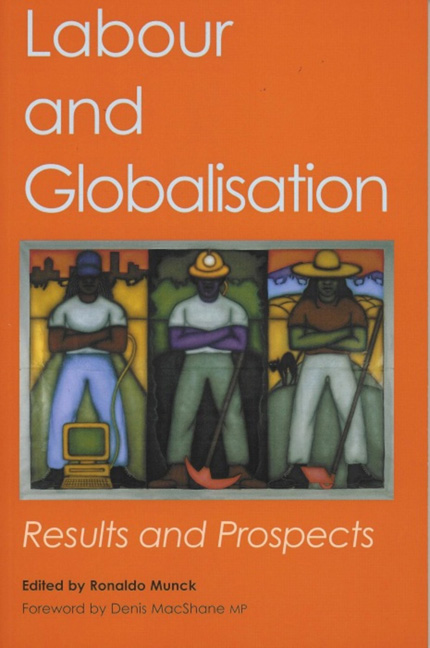Book contents
- Frontmatter
- Contents
- Acknowledgements
- Foreword
- Notes on the Contributors
- List of Abbreviations
- Introduction: Globalisation and Labour Transnationalism
- Part I Global Dimensions
- Part II Spatial Dimensions
- 5 Re-Scaling Trade Union Organisation: Lessons from the European Front Line
- 6 Australia and Beyond: Targeting Rio Tinto
- 7 International Solidarity and Labour in South Africa
- 8 Labour and NAFTA: Nationalist Reflexes and Transnational Imperatives in North America, 1991–1995
- Part III Social Dimensions
- Index
8 - Labour and NAFTA: Nationalist Reflexes and Transnational Imperatives in North America, 1991–1995
from Part II - Spatial Dimensions
- Frontmatter
- Contents
- Acknowledgements
- Foreword
- Notes on the Contributors
- List of Abbreviations
- Introduction: Globalisation and Labour Transnationalism
- Part I Global Dimensions
- Part II Spatial Dimensions
- 5 Re-Scaling Trade Union Organisation: Lessons from the European Front Line
- 6 Australia and Beyond: Targeting Rio Tinto
- 7 International Solidarity and Labour in South Africa
- 8 Labour and NAFTA: Nationalist Reflexes and Transnational Imperatives in North America, 1991–1995
- Part III Social Dimensions
- Index
Summary
The fight against the North American Free Trade Agreement helped to open up a belated public debate, especially among trade unionists, regarding the advantages and disadvantages of the current model of international trade and investment contained in ‘free trade’ agreements such as the General Agreement on Tariffs and Trade, NAFTA, and Mercosur. Although such supranational phenomena seem distant, alien, or alienating to most non-specialists, the common people of today's world cannot afford to ignore the accelerating and largely negative impact that such developments have had on their lives, living standards, and collective and individual rights.
In the early 1990s, the backers of NAFTA hailed this model of market-driven development subordinated to the United States as the path forward for the world's peoples. Having ignored NAFTA's severe limitations, they were taken by surprise when the December 1994 peso meltdown revealed the brutal truth that NAFTA had nothing to do with creating jobs in the US, Canada and Mexico, nor did it improve the living standards of the people of any of the three countries. Instead, the speculative bubble underlying the drive to pass NAFTA was revealed as an elaborate hoax; the predictable outcome has been a devastating assault on the well-being of Mexican citizens and, to a lesser extent, those of the US and Canada.
Like all great public controversies, the NAFTA debate had its defining phrases and images that synthesised collective fears and embodied them in concise form. Most US citizens no doubt remember Ross Perot's famous ‘sucking sound to the South’ as jobs left the US for Mexico. Far fewer, however, are likely to recall its equally pithy Mexican counterpart: the ‘giant gulping sound to the North’ as the US gobbles up Mexico. It is useful to deconstruct these two very different ‘sound-bites’ because these representations of self and other, when read against each other, do in fact reveal a great deal about both societies (Kingsolver, 2001). Perot's graphic ‘sucking’ image is about jobs as the lifeblood of the nation and their loss, it is suggested, is a slow process that gradually weakens the victim. The image also suggests that there is a perpetrator, such as a vampire or a blood-sucking leech – a sneaky opponent who is both dishonest and indirect.
- Type
- Chapter
- Information
- Labour and GlobalisationResults and Prospects, pp. 149 - 166Publisher: Liverpool University PressPrint publication year: 2003



